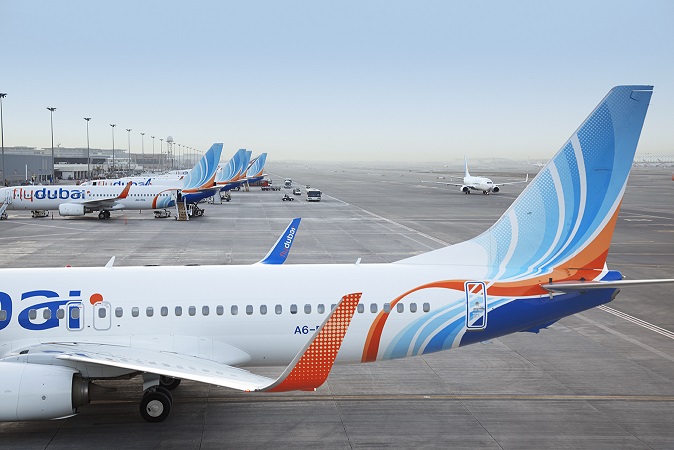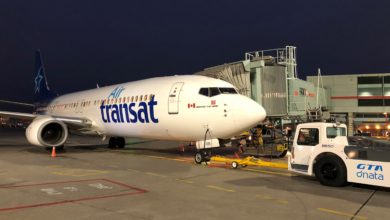
Dubai UAE
Sallam Sallam
Reports loss of AED 196.7 million (USD 53.6 million); a 38% reduction when compared to the first half of 2018
Total revenue remains unchanged from the same six-month period and is reported at AED 2.8 billion (USD 759 million)
ASKM[1] is reported at 12,877 million; down 14.9% compared to the period ending 30 June 2018
Passenger numbers dropped to 5 million during the first six months of the reporting period; a decrease of 7.5% as a result of the reduction in capacity
Statements on Half-Year Results 2019
Ghaith Al Ghaith, Chief Executive Officer at flydubai, said: “we had reported in our 2018 Full-Year Results that we were cautiously optimistic at the start of 2019. We had seen positive results as our routes matured and during the first few months of the year we saw strong demand across the network. Our performance has however been significantly impacted by the grounding of the Boeing 737 MAX aircraft and our Half-Year Results are not representative of what we had expected to report; we were expecting a significantly improved performance.”
Francois Oberholzer, Chief Financial Officer at flydubai, said: “in light of the grounding we have taken every effort to minimise flight cancellations and maximise revenue opportunities. Unavoidably, this led to a reduction in ASKM by 14.9% which meant that we were not able to fully exploit demand opportunities. The cost efficiency programmes, we introduced at the beginning of the year, have yielded the planned benefits with the exception of the fuel efficiencies from the MAX deployment plan. These programmes were never intended nor could have offset the financial impact of the grounded Boeing 737 MAX aircraft.”
Financial Performance
Fuel costs: Fuel costs are reported at AED 740 million; compared to AED 895 million for the same period as in 2018, a decrease of 17.3%. This was due to the benefit of lower fuel prices and reduced ASKM. The full potential saving has not been realised due to the deployment of the Next-Generation Boeing 737-800 aircraft on our longer routes.
Closing cash and cash equivalents position including pre-delivery payments for future aircraft deliveries, is reported at AED 1.9 billion, compared to AED 2.1 billion as at 30 June 2018.
Ancillary revenue comprising baggage, cargo and inflight sales is reported at AED 249 million (USD 68 million) for the six-month reporting period, compared to AED 263 million (USD 72 million) in the same period in 2018; reflecting the reduction in passenger numbers for this period.
Operational Update
Fleet: During the first six months of the year, flydubai retired five aircraft and they were returned to the lessor. The airline took delivery of one Boeing 737 MAX 8 aircraft. Since 13 March, flydubai continues to maintain 11 Boeing 737 MAX 8 and three Boeing 737 MAX 9 aircraft which remain grounded.
Network: During the first half of 2019, flydubai launched flights to Kozhikode in India, Tashkent in Uzbekistan, Naples in Italy and Sochi in Russia bringing the total number of destinations on its network to 92 destinations in 48 countries.
New appointment
Following the retirement of Captain Ken Gile, Captain Christopher Grazel has been appointed as Chief Operating Officer with effect from 01 January 2019.
Statements on Full-Year 2019 Outlook
Fleet: A further four aircraft will retire from the fleet by the end of the year. The airline has been able to negotiate an extension to the lease for two Next-Generation Boeing 737-800 aircraft, which were due to leave the fleet in 2020 and will now leave in 2022. The airline will continue to explore short to medium-term leasing options including Aircraft, Crew, Maintenance & Insurance (ACMI). Effort continues to be made to minimise the disruption to its passengers especially ahead of the seasonal holiday period which is traditionally when the airline sees strongest demand for travel. The airline will continue to optimise its schedule.
Terminal 3, Dubai International (DXB): From 27 October, flights to seven destinations (Almaty, Basra, Dar es Salaam, Kilimanjaro, Nur-Sultan, Sofia, and Zanzibar) will relocate to Terminal 3 at Dubai International (DXB) as Emirates and flydubai continue to work closely together to increase connectivity offering customers unmatched opportunities to travel.
Network: flydubai is expanding its network eastwards and becomes the first UAE national carrier to offer flights to Krabi, which will be operated via a stop in Yangon in Myanmar. Flights will operate daily from 10 December 2019.
Ghaith Al Ghaith, Chief Executive Officer at flydubai, commenting on the outlook for 2019, said: “in our 10th Anniversary year, we had expected to grow our fleet and continue with our plans to expand our network. Without any deliveries of new aircraft and no visibility of the timelines, we will see our operating fleet reduce in size to what it was in 2014. This is disappointing. We are in ongoing discussions with Boeing, as our long-standing partner, to resolve the unprecedented nature of this grounding and the significant impact it has had on our business and growth strategy. If the grounding continues until the end of the year we expect our performance to continue to be impacted.”
[1] ASKM Available seat kilometre









